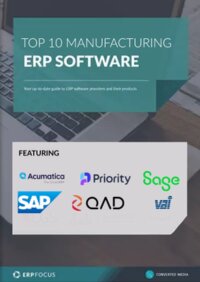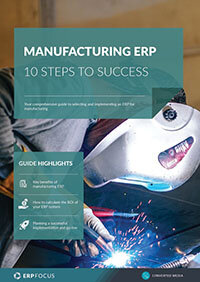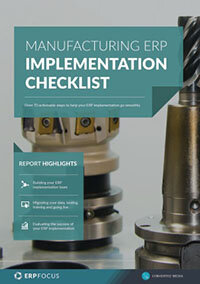Process Manufacturing ERP Requirements Analysis: The Basics
Process manufacturing businesses can gather value from powerful tools like an ERP system just like any other organization. And like other organizations, how they use those tools determines the value gained. But the majority of businesses are discrete manufacturers and so the majority of ERP systems cater to the larger market. The issue lies in the fact that process manufacturing ERP requirements can differ greatly from their discrete counterparts.
Manufacturing Communication
Many process manufacturers use fully or semi-automated flows so the ERP must communicate more with machines than another business where communication is with people. The process manufacturing ERP might tell a PLC to start an operation electronically instead of providing a dispatch list. The SPC feeding information back to the ERP is more likely to be a sensor reading temperature rather than a technician completing a chart. An ERP designed for process manufacturers should already have these capabilities but each business must understand their own communication needs and ensure the selected ERP meets the requirements.
Lot Traceability
Some areas are important to a degree for discrete manufacturers, but are of life and death importance to a process manufacturer. Shelf life to one means the glue could no longer be sticky and to another, the product itself could cause serious injury to a patient. A bag of fasteners will have lot control but how often will a rivet be defective? But when someone becomes ill from eating spinach with e-coli we need to know quickly where the spinach came from, where it was processed, and who else might have bought that batch of product.
Process Manufacturing Compliance
Regulatory reporting and requirements are particularly important in many process industries. Those requirements continue to evolve and become even more restrictive. HACCP is a recent addition for food and drug manufacturers. What compliance requirements does your business have for a process manufacturing ERP system.
When preparing your set of requirements for your ERP, be careful not to make those requirements too strict. You could eliminate some ERP providers unintentionally. Write down your set of requirements. Ask all your discipline leaders to write their own lists. Have a conversation and reach consensus on your business’ true requirements. Then prioritize into “must have”, “really should have”, and “would like to have” requirements. Now you can rate prospective ERP providers compared to your needs. Don’t eliminate a system just because it isn’t specifically for process manufacturers. Many general purpose ERPs have excellent capabilities for your industry. At the same time, use caution to read behind the advertising and know that a process manufacturing ERP system that claims to be specifically for your industry truly meets your requirements.
Free white paper
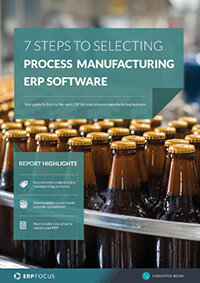
7 Steps to Selecting Process Manufacturing ERP
Your guide to finding the right ERP software for your process manufacturing business
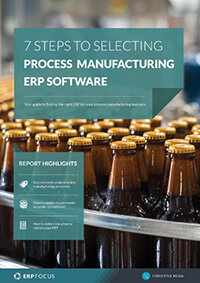
Featured white papers
Related articles
-

4 training tips for manufacturing ERP success
These four training tips will help your employees get the most out of your new manufacturing ERP ...
-

How the right ERP can help you launch a successful omnichannel business
Petersen Zhu, CEO of DigitBridge and Vibes Base, shares how to create a scalable omnichannel stra...
-

ERP for make-to-order manufacturing
How can ERP help your make-to-order manufacturing business thrive?


